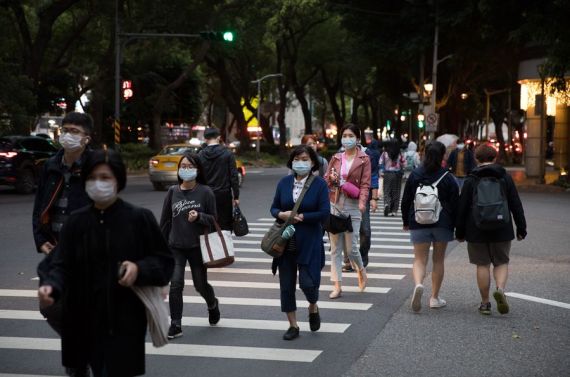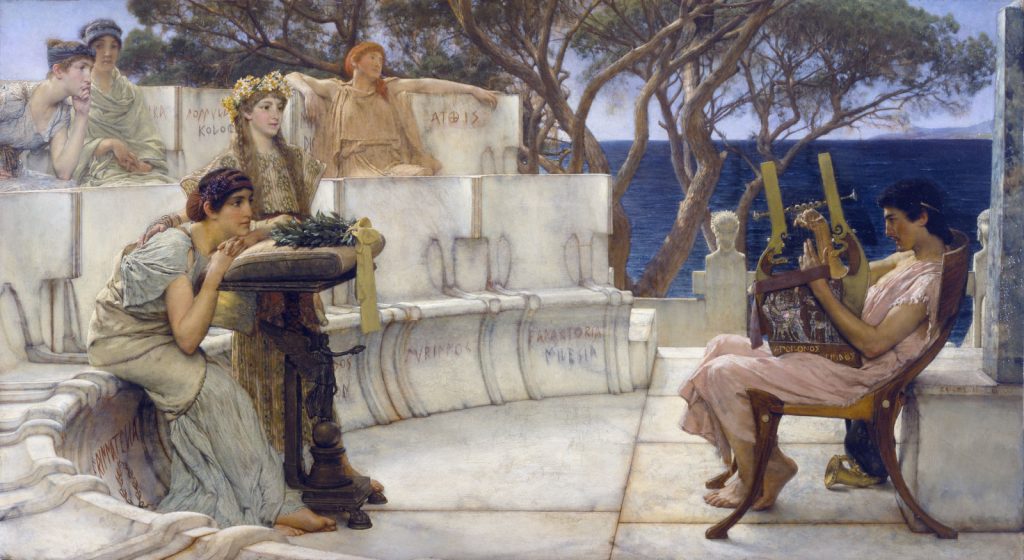We really stood out. I mean literally, a foot above.
I remember the morning commute, staring down at a sea of black hair, slowly inching towards the constantly rotating subway doors. My (then) boyfriend, towering above everyone at 6’2”, was the only non-Asian face I could see among the thousands, often for weeks on end.
I never lost him in a crowd!
It was 2009 and we were living in the densely populated capital city of Taipei, Taiwan. The expat crowd usually skips over the stunning and super modern island of Formosa, preferring the party scene in Hong Kong or the well paid jobs of Singapore.

Taroko Gorge, a stunning landscape in Taiwan
As such, we foreigners were quite the novelty, treated with impeccable hospitality and kindness. But no matter what, our differences were quite apparent.
And it wasn’t just the superficial stuff either. It was clear we came from very different cultures, especially when it came to group dynamics.
Perhaps the most glaring example was crossing the road.
I worked at various schools at the time, and unlike my more disciplined and organized colleagues, I was usually running late to the next class. I would be hauling down the street, locals agog at my pace (sweating is frowned upon), when I’d come to a street crossing.
I’d look left. No cars.
I’d look right. One car, but a long way away. I had plenty of time to get across.
But as I walked out, in clear defiance of the red glowing hand, something happened.
Without looking up, everyone else on the corner followed me. As well as those on the other side… They automatically took my cue to walk, assuming that it was safe for everyone to cross.

Crossing the road
It became clear that unless I wanted a flattened Taiwanese pedestrian on my hands, I had to change my mindset real quick. I had to let go, just a little, of the fully individualistic perspective I grew up with in the US and the UK.
I HAD to think of the group around me, because they became, suddenly, my responsibility too.
This sense of the collective still found with frequency in the Far East was also prevalent in the ancient world. I imagine our classical forefathers would have been confounded by our western cult of the individual.
Instead, the regular rituals, community sacrifices, processions and religious proceedings, especially in the archaic and classical eras, worked to reinforce the collective culture.
Indeed, it is this difference that often incorrectly colors our understanding of ancient history. For instance, when reading the poetry of Sappho, we envision our modern poets, romantic figures like Bryon or Keats, furiously scribbling their deepest most intimate thoughts next to a rain streaked window in a forlorn attic somewhere no doubt cold.
Their words are portals to their individual feelings and emotions, a true reflection of their love, pain or fear.
Imagine instead, that they always wrote for a performance. Those powerful words were sung with dancers with an audience. How then are we to know the individual thoughts of the writer? As André Lardinois, a Greek Poetry Professor at Radboud University writes, “What is ‘personality’ in such a group-oriented society as archaic Greece?”

Sappho and Alcaeus, By Lawrence Alma-Tadema
Acknowledging the vast differences between cultures, both then and now, with regards to being individualistic or collective… we come to our monday mailbag question. We’ve already been talking about Collective guilt, and its shadow in history, but what about the more general question?
What is better? In light of all our current events and the issues that plague us, what should we strive for? The cult of the individual? Or a society of the collective? What will work best now… and in the long run?
As always, you can comment below or write me directly at [email protected]










One comment
Collectivism implies that there will be conformity, patriarchy, hierarchy, authoritarianis, totalitarianism, indoctrination and that an attempt will be made to make everybody fit into some kind of form…
The failures of collectivism are too many to contemplate:
* It will try to make squares fit perfectly into the circles, and this action will cause damage to the square at its corners
* it will see intelligent people as problems to its stupidity and will molest and harness them in almost every case
* totalitarian tyrannies like nazism, fascism, communism, christianism, etcetera are the result — the idea of patriarchal hierarchy has killed 100s of millions of people and has destroyed many lives
* it destroys many personal dreams and ideals, in the past, and is still doing so today…
Collectivism, on a personal level, leads to meddling into the affairs of other people, leads to aunts and other such females to tell the children under their control, ‘to love god or go to hell,’ etcetera…
Collectivism therefore leads to insanity, child molestation and abuse (like in my aunt-example at the end of the previous paragraph etc…
Pure collectivism that is based on some form of indoctrination (the violation of someone’s mental and intellectual capabilities) is pure evil… and indoctrination implies that information-control, is also at the core of collectivism. Information is life and to withheld or to control it are actually violations of humanity: it’s a horrible crime, especially today…
Individualism, where one must have the all the information that one can get one’s hands on, and the desire to put in the effort to use such information to evolve oneself are all that an individual person needs to build a life and to thrive, evolve…
Pieter J (PJ)
Trackbacks
Our apologies, you must be logged in to post a comment.